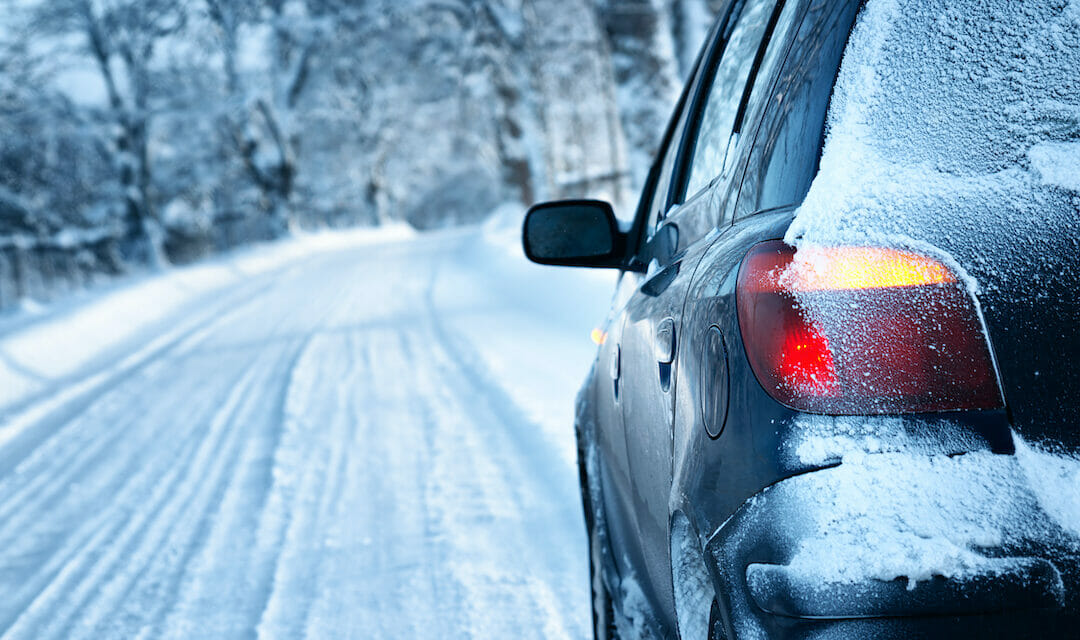Winter weather does little to slow down or change deadlines associated with real estate contracts and as a home inspector, the necessary preparation should go into tasks as straightforward as driving to and from inspections. Not all drivers are created equal—some grew up in areas of the country where snow and winter precipitation are common and for some others snow may have been a rarity. No matter where you were raised or how comfortable you may or may not be driving in winter weather—there is some basic guidance and safety tips you can take to increase the chances you’ll arrive to your destination on time and safely. We’ll examine some of these ranging from the obvious to some that are less intuitive. As a baseline, it’s always imperative that good judgement is used to first determine if the conditions are safe to be out on the roads at all. If local or State authorities deem the conditions too dangerous for travel, prompt communication is needed to inform all parties of the situation.
Starting with the basics it’s always a good idea to have some emergency supplies in your vehicle. These will vary based on your location and the temperature/precipitation norms for that particular part of the country. Even if you believe you are the best driver in winter conditions, maybe you know a friend or fellow home inspector who could use a pointer or two. Some basic items to consider keeping on-hand include:
- Extra cold weather gear (jacket, pants, gloves, hats).
- Blanket(s). Wool is a good choice but anything to help hold in some heat is better than nothing.
- Flashlight/headlamp with extra batteries (in addition to what is in your inspection tool bag)
- Snow and ice scraper
- Windshield washer fluid (make sure to get a solution that will not freeze).
- Consider purchasing tire chains if live in mountainous area or one where tire chains may be required at certain times of the year.
- Back-up cell phone battery charger and an extra charging cord.
- Tow chains or straps
- Chemical hand warmers
As a general rule, it’s a good idea to periodically review your emergency kit to make sure nothing was removed and that the batteries are all functioning. Make sure to check the tread on your tires and if you have winter or snow tires, make sure these are swapped out BEFORE the weather turns nasty. Make sure your wiper blades are in good working order (winter blades work very well and have a special sheath that makes it more difficult for snow and ice to make the blade freeze up and become rigid). Check your wiper fluid levels, ensure your defroster/heater works, check your battery level and make sure to fill your tank before heading home for the evening. The more time you can save by a little extra preparation prior to the scheduled property evaluation, the less stress and pressure you’ll feel.
When it comes to driving, I’m sure you’ve heard friends, coworkers, colleagues or clients explain how proficient they are navigating in winter weather. Those statements are often at odds when confronted with the reality of being on a frozen road in the middle of a snowstorm.
As mentioned previously, if the conditions are not safe—stay off the roads. Rescheduled appointments are not desirable, but there are conditions where the risk is simply not worth any potential reward.
Slow down. If conditions are causing delays, the best course of action is to inform your client and/or agent of the situation and keep them informed. Chances are very good that if you planned accordingly and are still running behind that anyone meeting you at the inspection will be as well. Keeping an open line of communication will help mitigate any fallout due to slow travel. The important aspect here is that proper planning and cushion was allowed AND communication occurs when you first become aware that you may be late.
Increase your normal following distance to vehicles in front of you. This could be the difference between making a scheduled appointment and either a delayed arrival or no arrival at all.
Accelerate and decelerate slowly. Making sure you are very intentional about speeding up and slowing down could save you from waiting on a tow truck to pull you out of a ditch-or much worse. Ice can make it near impossible to stop when moving down a hill and accelerating too quickly can cause you to lose control of your vehicle and cause much more harm than good.
Four-wheel drive is an excellent option to have—but there are some limitations to how much it can really help. It can also lend a false sense of security to inexperienced drivers. A good thing to remember is that it may help you go, but it doesn’t do much to help you slowdown or stop.
Many drivers keep a bag or cat litter or sand in their vehicle. This can be useful for getting a little extra traction if you find yourself in a bind.
Finally, check the weather and communicate accordingly. If a major storm is expected, it may be the wise option to check in with your office and/or clients to make sure they are aware of the incoming weather situation and potentially adjust schedules to best fit everyone’s needs. Most real estate agents will appreciate proactive communication and if these situations are handled with professionalism and in a timely manner, you can generate referral business and keep all parties satisfied.
Taking all of the necessary precautions by preparing the day before a weather event, proactively communicating with your office and/or clients, ensuring your emergency supplies are present and in good working order and exercising the appropriate level of caution will give you the best shot at making it to your inspection on-time. There will always be variables that are impossible to account for—do yourself and your clients a favor and eliminate as many of the controllable factors that may cause you to be tardy (or to not show up at all).



